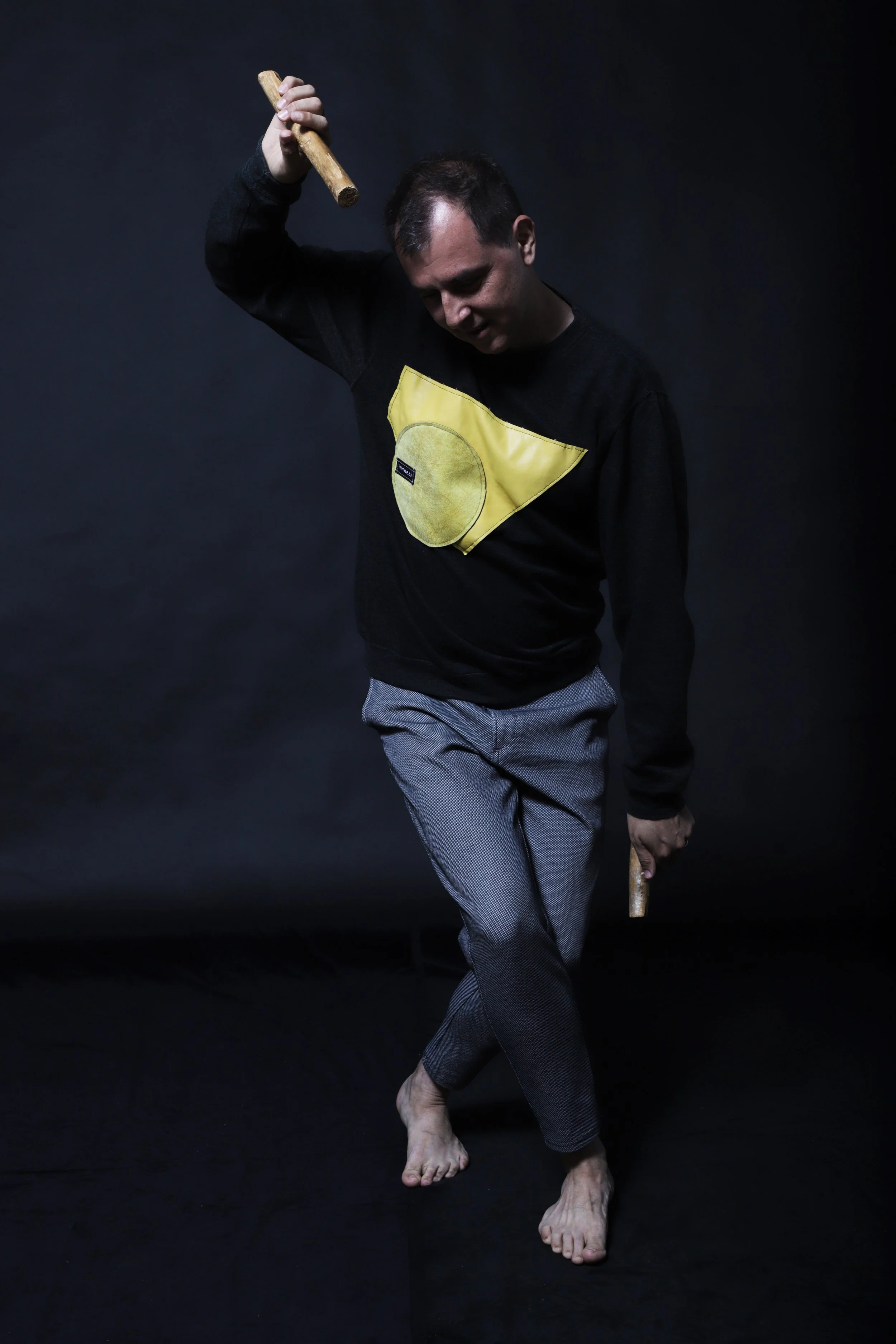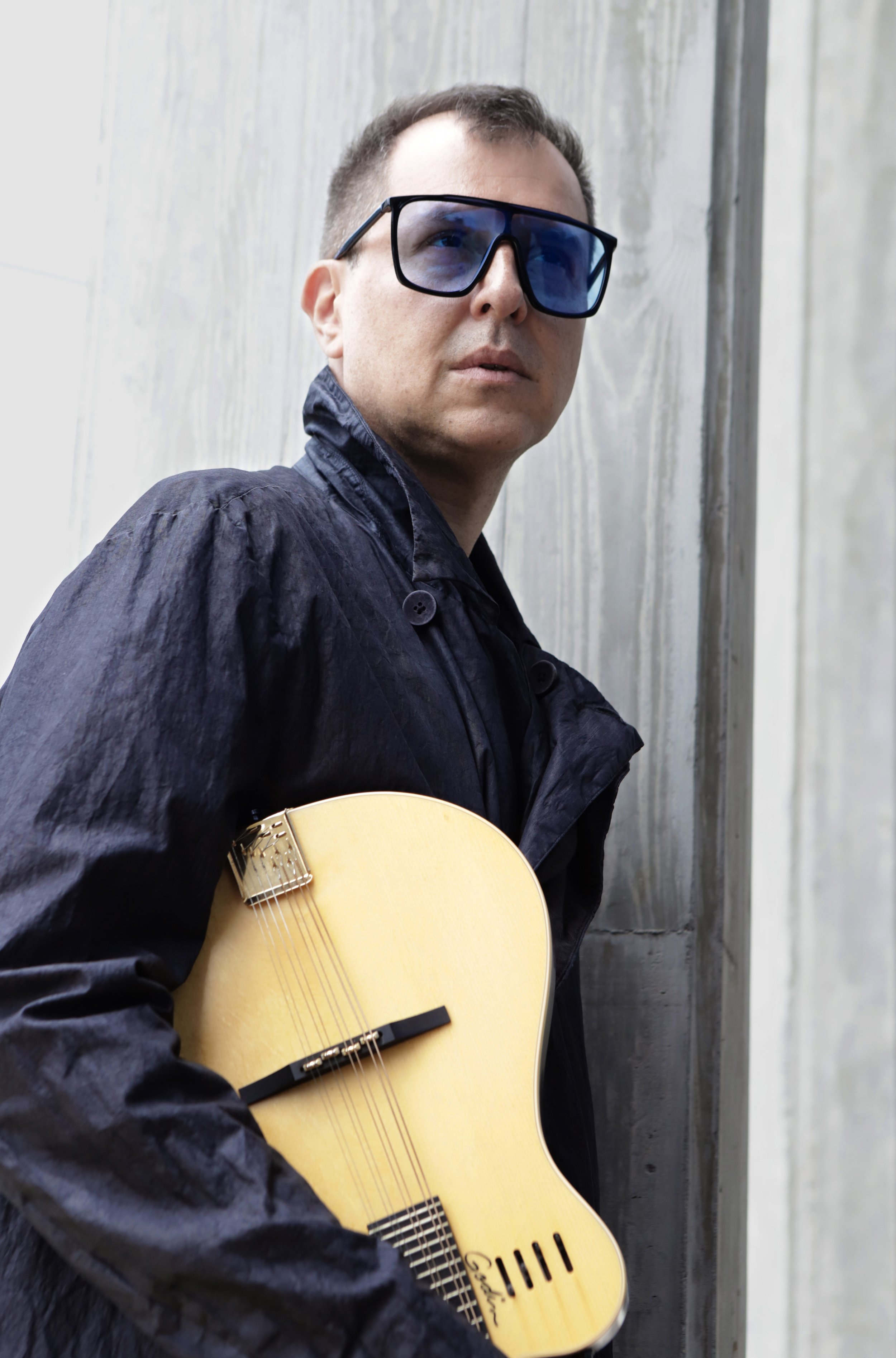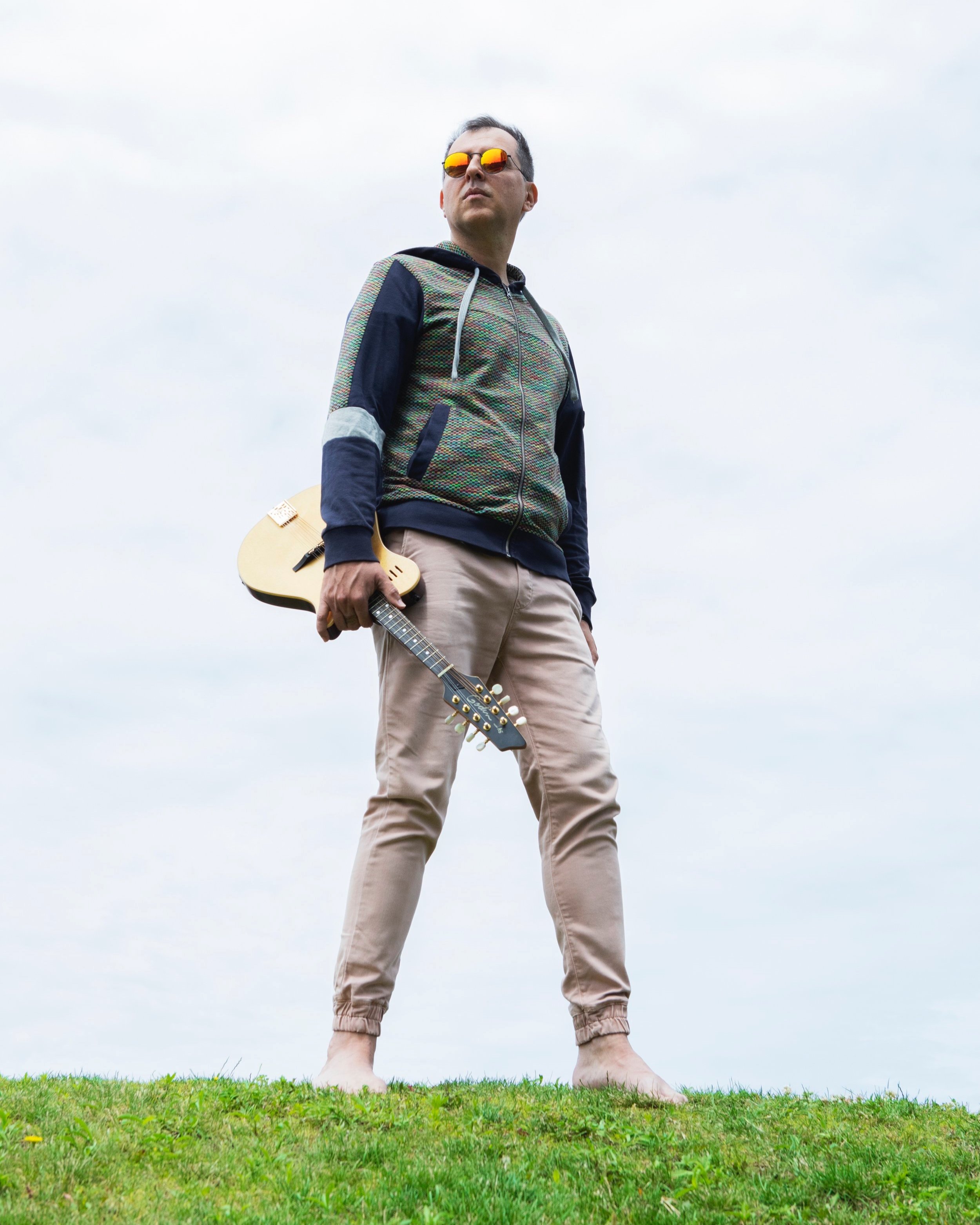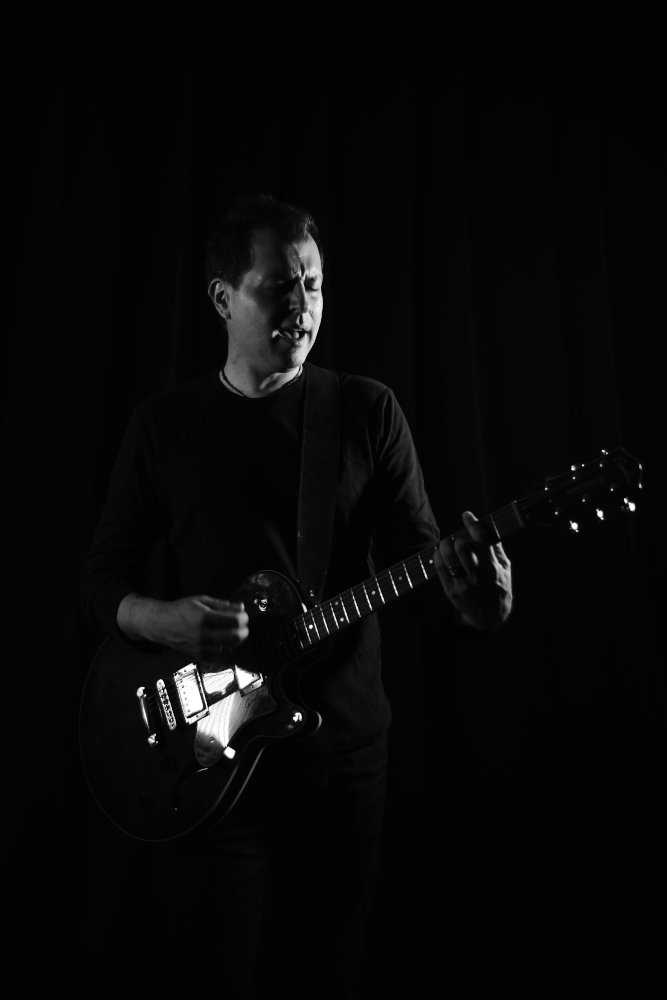The music of Colombian-born, Venezuela-raised Juancho Herrera dances along with a fine, diffused line that melds strong national character into the universality of the human experience. From a young age, he has imbibed the charismatic ethos of Venezuelan artistic tradition and this has informed his musical career. At a much deeper level, Herrera has been affected by the elemental sorrow and unfettered, triumphant joy of the blues. It is this unique collision – informed by and influenced by his literary and visual artistic proclivities – that has resulted in musical art that is multi-dimensional, rich in storytelling, literary allusion, and an experience that is cinematically vivid as well.
After a scholarship got him to the Berklee College of Music in Boston in 1993, his North American sojourn began. Herrera relocated to New York City, in 2000. In short order he found himself collaborating with an enviable roster of celebrated artists from a diverse musical world. Herrera’s vocal gifts were put to full use – as was his ability to play a range of string instruments [guitars, cuatro and mandolin] – landed him in the studio with artists such as Lila Downs [2008, 2010], Sofia Rei [2009], Claudia Acuña[2009, 2019], The Chieftains and Ry Cooder [2010], Ryuichi Sakamoto and Kotringo [2007, 2012], Alejandro Sanz [2012], Aquiles Baéz [2012], Marta Gómez [2009 to 2014], Abraham Gómez-Delgado and Zemog el Gallo Bueno [2005 to 2018], Manu Sija [2019] to name a few. He also performed with Mercedes Sosa, Branford Marsalis, among numerous others. Herrera’s considerable extra-musical abilities – such as in aspects of the art of music-making (scoring or arranging), and its overall production – have also been well-documented. In recent years, Herrera has contributed his instrumentals and musical arrangements, as well as shared co-production credits with Erika Matsuo [True Colors, 2012, Nostalgia, 2015, Reflections, 2017, Here and Now, 2021], Claudia Acuña [the Latin Grammy-nominated Turning Pages, 2019], and most recently Nikolett Pankovits [Magia, 2016 and River, 2020]. The later three recordings relied exclusively on his production skills.
Of course, in addition to numerous studio performances, he also took to the stage in over 40 countries. Everywhere - via his compositions or guitar-playing - he spread his unique and volcanic mix of South American music melded in with the West African idioms found in Mali and Senegal.
To have a panoramic experience of all of Herrera’s wide-ranging songwriting and complete music-making – production and performance – one must turn to his solo recordings. His debut came with the precocious 2005 recording, Buscando. With this recording, Herrera not only introduced himself to the world of music as a vocalist and instrumentalist, but he also introduced to the world of his beloved Venezuela, “la tierra de los mil ritmos” [“the land of a thousand rhythms”]. With this musical odyssey, Herrera put a very personal spin on Venezuela’s traditional genres such, as its Andean and coastal Afro-Caribbean rhythms, joropo, all of which were melded into a musical world-view steeped in the blues and other forms of Afro-American and western improvisational music.
Although he took his time to work on his sophomore recording, Banda [2011] Herrera solidified his reputation for creativity as he engaged in a spirited musical collision between the traditional and the contemporary. A third recording followed in the form of El Mismo Sol [2015]. With this recording, Herrera’s music became more socio-politically aware. His highly-original music – driven by his vocals and strings-playing – was also interpreted by the stellar musicians who accompanied him and produced music with amazingly clear sonorities, light and dark textures, and heart-felt stories in a thrillingly revealing performance.
More recently, Herrera turned his attention to the treasures of Colombian literary lore. Gaviero [2017], sets to music the adventures and foibles of one of the most beloved Colombian fictional characters: Maqroll, the charming character created by celebrated Colombian poet, novelist, and essayist, Álvaro Mutis.
His latest single El Mandado (The Ruled One, 2021) is a song born out of all the angst and conflict experienced during the pandemic, lockdowns, and the rise of authoritarianism and racism afflicting the world. Featuring Herrera on guitar, vocals, synth, bombo, and sampler, Franco Pinna on drums and percussion, Manu Koch on electric piano, Bam Rodriguez on electric bass and Moog, and special guest Alejo García on vocals, the song was recorded remotely by each musician in New York, New Jersey, Florida and Medellín, Colombia. Herrera wrote the music and words, which follow an old Spanish literary form called décima. Used in poems and songs across Latin America for centuries, décima has taken on a particular national flavor, or tonada, in each country and region. “El Mandado” draws on elements of Venezuelan décima, Argentinean vidala and carnavalito, electronic textures and free jazz. An incantation and exorcism, “El Mandado” builds to a fervent prayer for revolution, not so much in a political sense, but in a messianic reversal where the last shall be first, and the first last. At a time when musicians are still largely cut off from their peers and listeners, “I believe singles are a good way to try new ideas and to have a more constant relationship with the audience,” Herrera says. “It also gave me and the musicians a sense of normalcy while we’re hoping to go back to performing live.”
There’s no telling where Herrera will take us next; what whisper will be spoken and sung, what old story retold and what landscape – imaginary or real – will be vividly revealed in his music.






